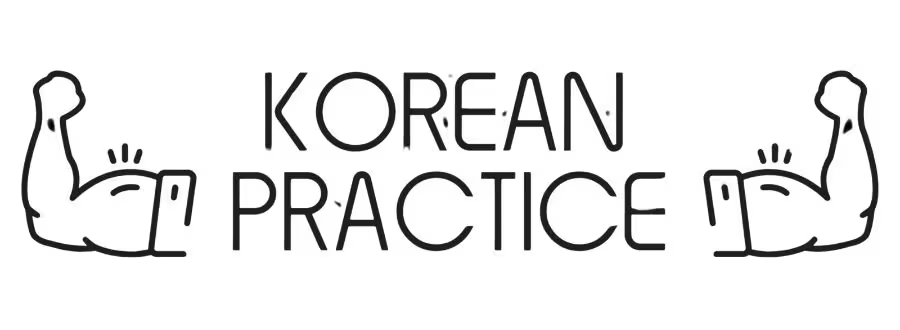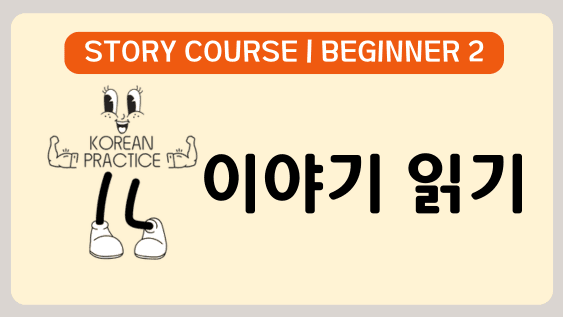Table of Contents
Introduction
If you’re planning a trip to Korea, you might wonder how to ask someone, “Do you speak English in Korean?”. It’s a useful question that can save you when you’re lost, shopping, or just trying to order food.
In this guide, we’ll explore different ways to ask this question. You’ll learn polite, formal, and informal versions, plus related phrases like “Can you speak English in Korean?” or “Do you understand English in Korean?”. Each section includes short and simple Korean examples with English translations so you can start practicing right away.
Main Phrase: Do You Speak English in Korean
The most direct phrase is:
영어 할 줄 알아요?
(yeongeo hal jul arayo?)
= Do you speak English?
This phrase is polite and safe for most situations. If you say this with a smile, people will understand right away what you mean.
Example:
👩 Foreigner: 영어 할 줄 알아요?
= Do you speak English?
Example Sentences:
Original Korean Sentence
영어 할 줄 알아요?
Pronunciation Guide
영어 (yeong-eo) 할 (hal) 줄 (jul) 알아요 (a-ra-yo)?
Meaning and Context
영어 (English) 하 (to do) ㄹ 줄 알 (can) 아요 (I’m asking you polite and friendly)?
English Translation
Do you speak English?
Literal Translation
Can do English?
How to Say “Do You Speak English in Korean”
There’s more than one way to say this, depending on who you’re speaking to. Another common version is:
영어 해요?
(yeongeo haeyo?)
= Do you speak English?
This version is shorter and easier for beginners.
Example:
👨 Local: 영어 해요?
= Do you speak English?
Watch this short story video to see Do You Speak English in Korean in action
How to Ask “Do You Speak English in Korean” (Polite Approach)
When asking strangers, it’s best to soften your tone. Koreans often add the word 혹시 (by any chance):
혹시 영어 하실 수 있으세요?
(hoksi yeongeo hasil su isseuseyo?)
= By any chance, do you speak English?
This version shows extra politeness and sounds gentle.
Example Sentences:
Original Korean Sentence
저기요. 혹시 영어 하실 수 있으세요?
Pronunciation Guide
저기요 (jeo-gi-yo). 혹시 (hok-si). 영어 (yeong-eo) 하실 (ha-sil) 수 (su) 있으세요 (i-sseu-se-yo)?
Meaning and Context
저기요 (excuse me, polite way to call someone) 혹시 (by any chance) 영어 (English) 하 (to do) 시 (I show you respect) ㄹ 수 있 (can) 으세요 (I’m askjing you politely)?
English Translation
Excuse me. By any chance, can you speak English?
Literal Translation
Excuse me. By any chance, can (you) speak English?
“Excuse Me, Do You Speak English in Korean?”
Before asking a stranger, it’s polite to start with 실례합니다 (excuse me).
실례합니다. 영어 하세요?
(sillyehamnida. yeongeo haseyo?)
= Excuse me, do you speak English?
Example:
👩 Foreigner: 실례합니다. 영어 하세요?
= Excuse me, do you speak English?
This feels respectful and is perfect for public places like stations or shops.
“Can You Speak English in Korean?”
Sometimes you want to ask if someone can speak English, not just if they usually do. For that, you can say:
영어 할 수 있어요?
(yeongeo hal su isseoyo?)
= Can you speak English?
This phrase is useful when you’re hoping the other person has some ability to help.

Example Sentences:
Original Korean Sentence
네, 조금 할 수 있어요.
Pronunciation Guide
네 (ne). 조금 (jo-geum). 할 (hal) 수 (su) 있어요 (i-sseo-yo).
Meaning and Context
네 (yes) 조금 (a little) 할 수 있어요 (can do, polite).
English Translation
Yes, I can speak a little.
Literal Translation
Yes, (I) can do a little.
“Do You Know English in Korean?”
If you want to check whether someone knows English at all, you can ask:
영어 알아요?
(yeongeo arayo?)
= Do you know English?
This is simple and friendly, though it’s not as common as “영어 해요?”.
“Do You Understand English in Korean?”
Another helpful phrase is:
영어 이해해요?
(yeongeo ihae haeyo?)
= Do you understand English?
This is great if you’ve already spoken some English and want to check if they understood.
Example:
👨 Foreigner: 영어 이해해요?
= Do you understand English?
Do You Speak English in Korean (Polite Version)
The polite version is best for talking to strangers:
영어 하실 수 있으세요?
(yeongeo hasil su isseuseyo?)
This form shows respect and works in everyday situations like asking directions or shopping.
Do You Speak English in Korean (Informal Version)
If you’re talking to a friend or someone younger, you can use the informal form:
영어 해?
(yeongeo hae?)
= Do you speak English?
This is casual and should only be used with people you’re close to.
Do You Speak English in Korean (Formal Version)
For very respectful situations, such as speaking with elders or in an official setting, use:
영어 하십니까?
(yeongeo hasimnikka?)
= Do you speak English?
This version sounds professional and is suitable when you want to be extra polite.
Example Sentences:
Original Korean Sentence
죄송합니다. 영어 못 해요.
Pronunciation Guide
죄송합니다 (joe-song-ham-ni-da). 영어 (yeong-eo) 못 (mot) 해요 (hae-yo).
Meaning and Context
죄송합니다 (I’m sorry, formal) 영어 (English) 못 해요 (cannot do; polite ending).
English Translation
I’m sorry. I can’t speak English.
Literal Translation
I’m sorry. (I) can’t do English.
Comparing All Versions
Here’s a quick overview of how the level of speech changes:
| Level | Korean | Pronunciation | English Meaning |
|---|---|---|---|
| Informal | 영어 해? | yeongeo hae? | Do you speak English? |
| Polite | 영어 해요? | yeongeo haeyo? | Do you speak English? |
| Respectful | 영어 하실 수 있으세요? | yeongeo hasil su isseuseyo? | Do you speak English (politely)? |
| Formal | 영어 하십니까? | yeongeo hasimnikka? | Do you speak English (formal)? |
Why These Phrases Matter
In Korea, the level of politeness in your speech really matters. Using the right version of “Do you speak English in Korean” shows cultural awareness and helps you get a warmer response.
- Use formal when showing high respect.
- Use polite with strangers.
- Use informal only with friends.
Extra Beginner Tips
If someone answers “네, 조금요” (Yes, a little), it usually means they can help a bit but not fluently.
If they say “아니요” (No), they probably don’t speak English at all.
Koreans often feel shy about their English skills, so even if they know some, they may hesitate.
From My Original Story Style Breakdown™ — A New Way to Truly Understand Korean
This is just one sentence from a complete learning system you won’t find anywhere else — designed to help you understand Korean naturally, without getting lost in grammar rules. You can choose between Quick Learning for a fast overview, or Deep Learning for a step-by-step breakdown.
When you can truly understand Korean sentences this way, speaking becomes much easier.
🚀 Quick Learning

Original Korean Sentence
사자가 코끼리를 잡아요.
Pronunciation Guide
사자가 (sa-ja-ga) 코끼리를 (ko-ggi-ri-reul) 자바요 (ja-ba-yo).
English Translation
The lion catches the elephant.
Literal Translation
Lion catch elephant.
Quick Reference
사자가 (lion) 코끼리를 (elephant) 잡아요 (catch).
💡 Need more details? See “Deep Learning” below!
🔍 Deep Learning
Meaning and Context
사자 (lion)
→ The lion — the one taking action now in the story.
가 (subject marker)
→ Points out that the lion is doing the action.
코끼리 (elephant)
→ The one the action is done to.
를 (object marker)
→ Shows that the elephant is the object being caught.
잡 (to catch, grab, take)
→ The action — the lion catches or grabs the elephant.
아요 (polite ending)
→ I’m telling you this in a polite and friendly way.
Real-Life Usage
잡아요 is common when talking about catching or holding something.
Pattern Practice
1. 사자가 토끼를 잡아요.
2. 고양이가 쥐를 잡아요.
3. 아이가 공을 잡아요.
4. 강아지가 공을 잡았어요.
FAQs (What You Might Still Wonder About)
What’s the difference between “Do you speak English in Korean” and “Can you speak English in Korean”?
The phrase “Do you speak English in Korean?” (영어 해요?) asks if someone generally speaks English. “Can you speak English in Korean?” (영어 할 수 있어요?) focuses on ability in that moment. Both are polite, but the nuance is slightly different.
Is it rude to use the informal version of “Do you speak English in Korean”?
Yes, it can sound rude if you ask a stranger 영어 해? (informal). The informal “Do you speak English in Korean” should only be used with close friends or younger people. Stick with polite or formal forms for safety.
When should I use the formal “Do you speak English in Korean”?
The formal version, 영어 하십니까?, is best in professional or official settings, like talking to staff at an office or addressing an older person with respect. This formal “Do you speak English in Korean” shows cultural awareness.
How do I say “Excuse me, do you speak English in Korean?” without sounding too direct?
A soft version is 실례합니다, 혹시 영어 하실 수 있으세요?. Adding 혹시 (by any chance) makes “Excuse me, do you speak English in Korean?” sound more polite and gentle.
Can I ask “Do you know English in Korean” instead of “Do you speak English in Korean”?
You can say 영어 알아요? (Do you know English?). But “Do you know English in Korean” feels more about knowledge, while “Do you speak English in Korean” is the usual way to check if someone can talk in English.
What’s the most polite way to ask “Do you speak English in Korean” if I’m worried about making mistakes?
The safest choice is 영어 하실 수 있으세요?. This version of “Do you speak English in Korean polite” is clear, respectful, and won’t sound rude in any situation.
Final words
Knowing how to ask “Do you speak English in Korean?” can be your best tool when traveling. From polite to informal to formal, each version has its place.
With phrases you learned in your pocket, you’ll feel more confident and ready to explore Korea. Don’t worry if your pronunciation isn’t perfect—Koreans will appreciate the effort!










